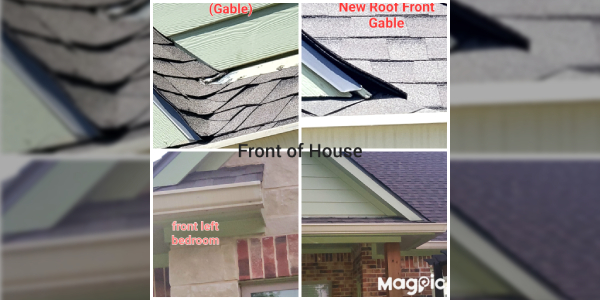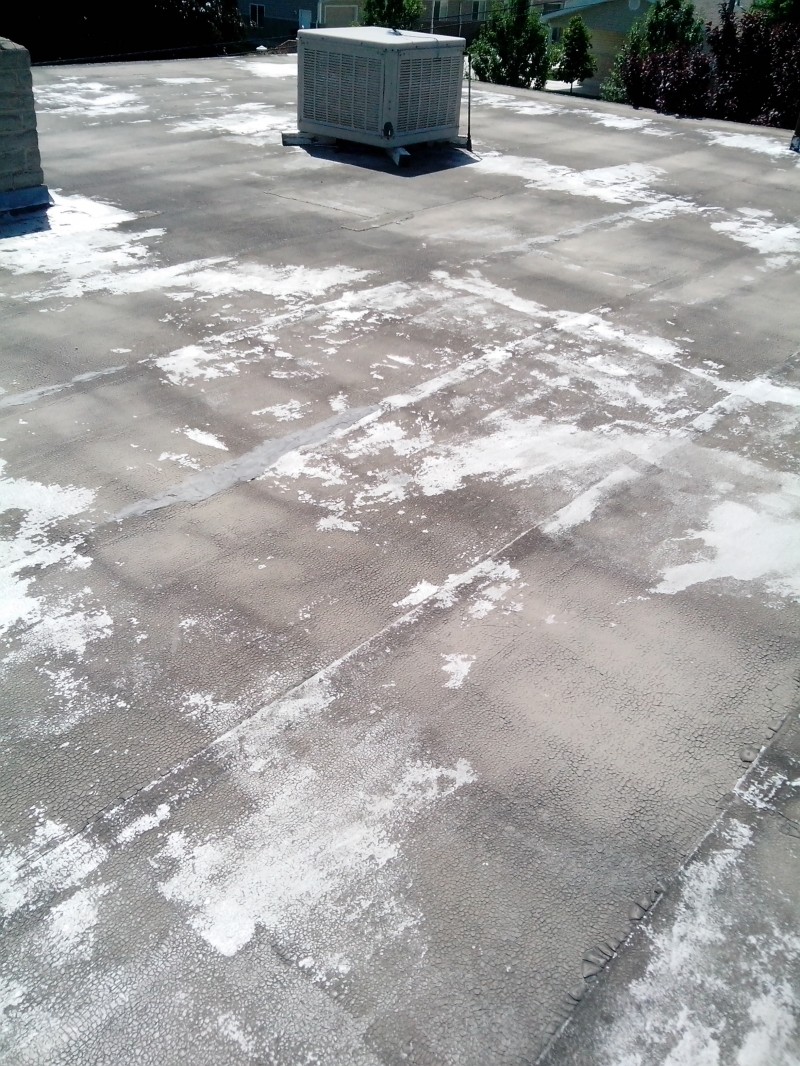Q&A - Post-hailstorm help

In the aftermath of a hail storm and a frustrating reroof, a homeowner came to the AskARoofer experts for some advice on next steps.
Sam, a homeowner in Texas, had some hail damage on their roof. When they went to get a new roof installed, they ran into some issues they wanted advice on. They asked:
We had hail damage, had a new roof installed. The new roof contractor said the original roof was built wrong where the gables are located on our roof. The new contractor re-used the old headwall flashing which looks horrible. The new contractor said they cannot place shingles over the flashing , plus they cannot remove the old flashing due to the siding. The chimney flashing is awful. The new roofer also put nails along the ridge, saying it is correct and they used 50-year caulk to seal the nails. My camera does not pick up the nails along the ridges very well. Any help would be great. Thank you.
One of our expert roofers, Henry Staggs said this in response. The following is a transcript of his video response:
So, Sam mentioned that he had a new roof put on and the roofers reused the old head wall flashing. He also commented on chimney flashing and said that that looked bad and noted that the roofer had installed fasteners along the ridge which are visible.
So let's break this down. Unfortunately it's true that too many roofers will reuse most of the flashings on the roof, including the head wall and even the field penetration flashings. However, my point is this: When you buy a new roof you should get a new roof. As flashings are a component of the new roof, you should get new flashings as well. Flashings play a critical role in protecting the vulnerable points of your roofing system, such as transitions edges and penetrations. It is vital that these areas are well protected.
Now there are times when flashing can be tough to get at. In our area for example there's Z Bar in the bottom of stucco. That's technically a wall flashing and serves as a counter-flashing for the flashing on the roof, which can be replaced cause it's just tucked right under the Z Bar flashing. You're probably not going to remove that otherwise it can cause a lot of damage. So it can be tricky. Now counter flashing is designed to go over the roof flashing your roof flashing comes up, the counter flashing goes over protects the top edge of that flashing and keeps the water out. But even this can still be replaced. You just have to cut the stucco out and replace the flashing.
Again, this is technically a wall flashing but often times we'll leave that in place. Other flashings I would say no, they have to be replaced. The stucco may be the exception to the rule, so I would have to disagree with the notion that a head wall flashing on a metal or wood siding may be too hard to replace as this roofer had told Sam. It might be challenging for some roofers, but for true craftsmen who care about their craft, it's very possible very doable. Now, they will learn how to do it right and of course they going to charge you a little bit more for that higher level of skill and that's another one of the reasons why hiring on price alone is always a bad move for homeowners.
Now about those visible fasteners along the ridge, something that we've addressed in a previous video and I really hope it's not becoming a trend, but all fasteners used to attach the trim pieces should not be exposed. You shouldn't be able to see them at all, except for maybe the few used to install the little ridge cap at the end — the little piece of shingle that goes over the edge. You put four nails on each side, caulk them up and that's the only nails that you should see on the ridge cap.
You can also watch the video version of this transcript on YouTube!
Have a question? AskARoofer.
Find your local roofing contractor in the RoofersCoffeeShop® Contractor Directory.










Comments
Leave a Reply
Have an account? Login to leave a comment!
Sign In